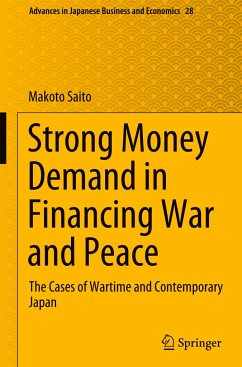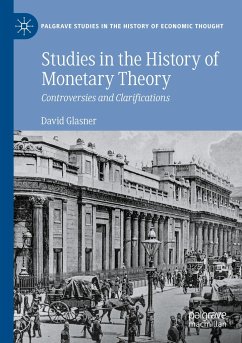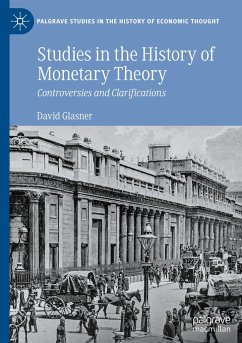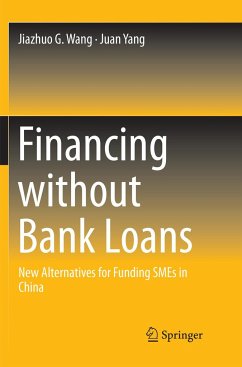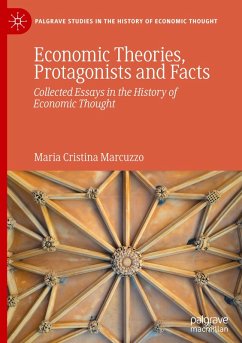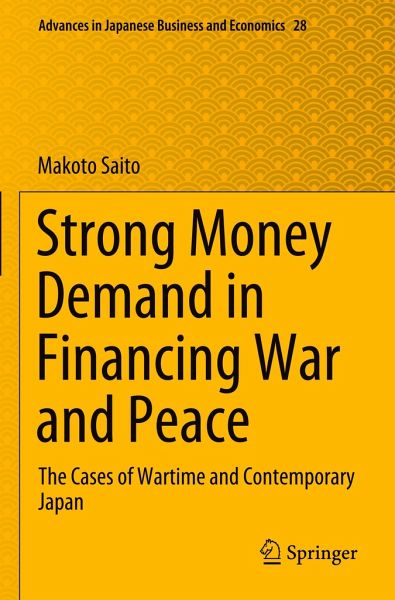
Strong Money Demand in Financing War and Peace
The Cases of Wartime and Contemporary Japan
Versandkostenfrei!
Versandfertig in 6-10 Tagen
91,99 €
inkl. MwSt.
Weitere Ausgaben:

PAYBACK Punkte
46 °P sammeln!
This book theoretically and empirically investigates the emergence of strong money demand in wartime Japan (1937-1945), its disappearance after the end of the war (1945-1949), and the reemergence of strong money demand in contemporary Japan (from 1995 to the present) in terms of the effects on fiscal activities and the price level. An augmented fiscal/monetary theory of the price level is constructed from a close examination of the strong money demand present in these periods. Then, profoundly puzzling phenomena such as mild deflation despite monetary expansion, low long-term interest rates de...
This book theoretically and empirically investigates the emergence of strong money demand in wartime Japan (1937-1945), its disappearance after the end of the war (1945-1949), and the reemergence of strong money demand in contemporary Japan (from 1995 to the present) in terms of the effects on fiscal activities and the price level. An augmented fiscal/monetary theory of the price level is constructed from a close examination of the strong money demand present in these periods. Then, profoundly puzzling phenomena such as mild deflation despite monetary expansion, low long-term interest rates despite fiscal unsustainability, and weak aggregate demand despite near-zero rates of interest, all of which are actually being observed in contemporary Japan, can now be interpreted in line with the above augmented theory. In the present, strong money demand at near-zero rates endows the Japanese government with maximum fiscal flexibility. However, if it disappeared for some reason, prices wouldsurge to the quantity theory of money level, and fiscal sustainability would have to be restored. In the future, alternative currency units issued by private banks might carry out a purge of such strong demand for the yen.



